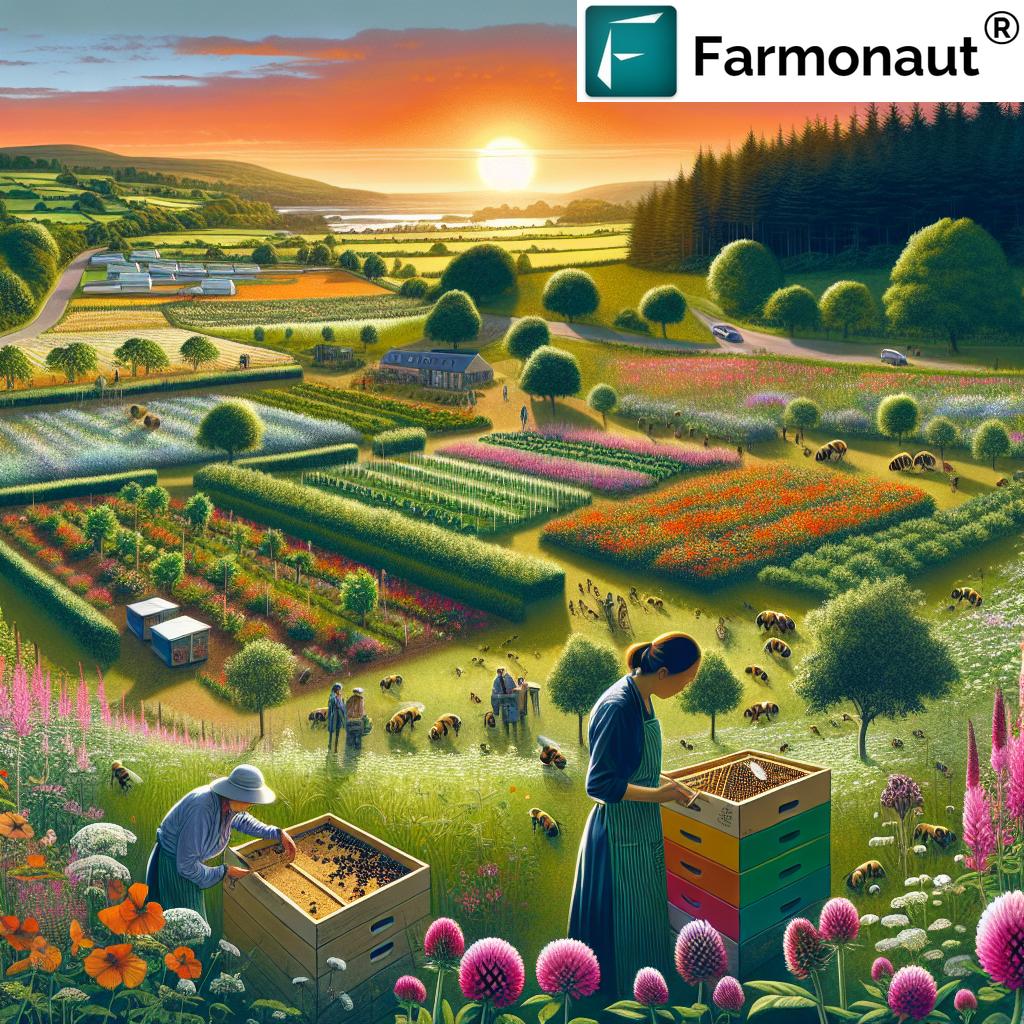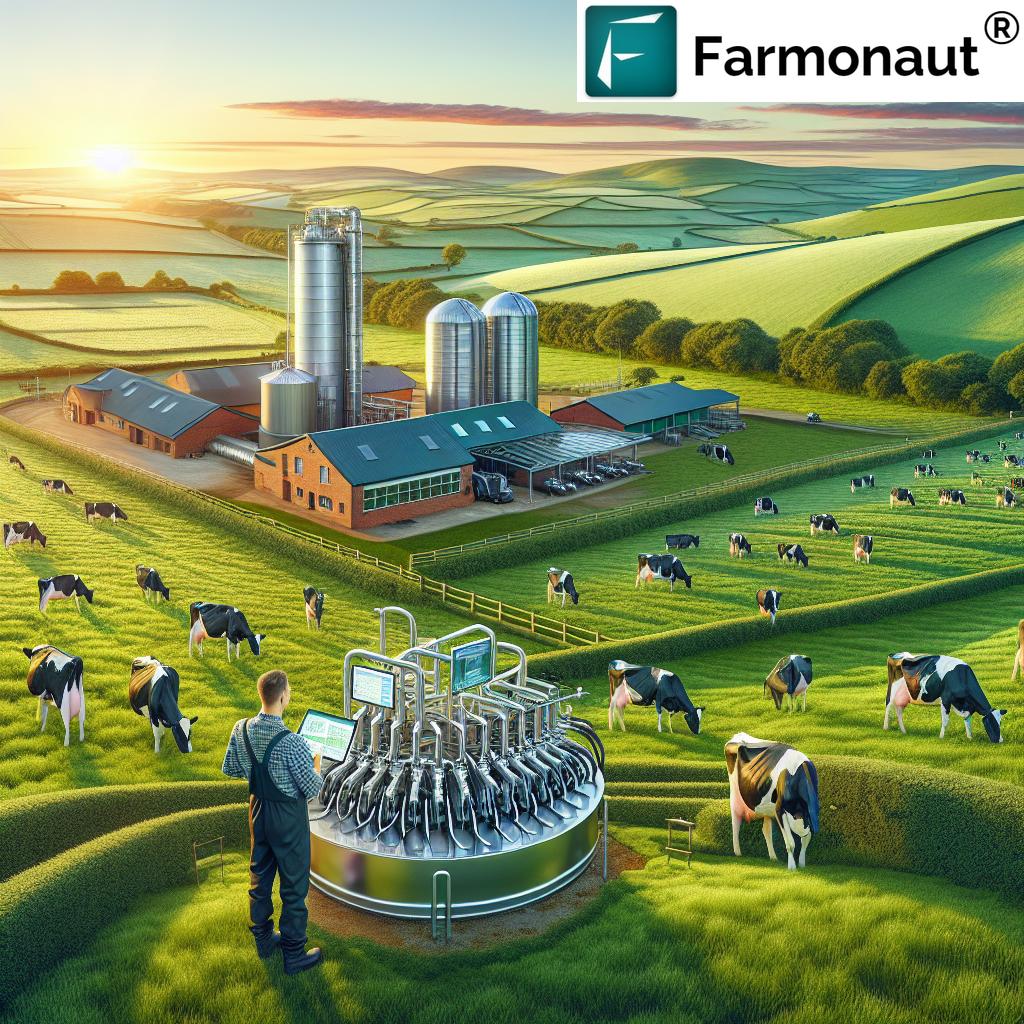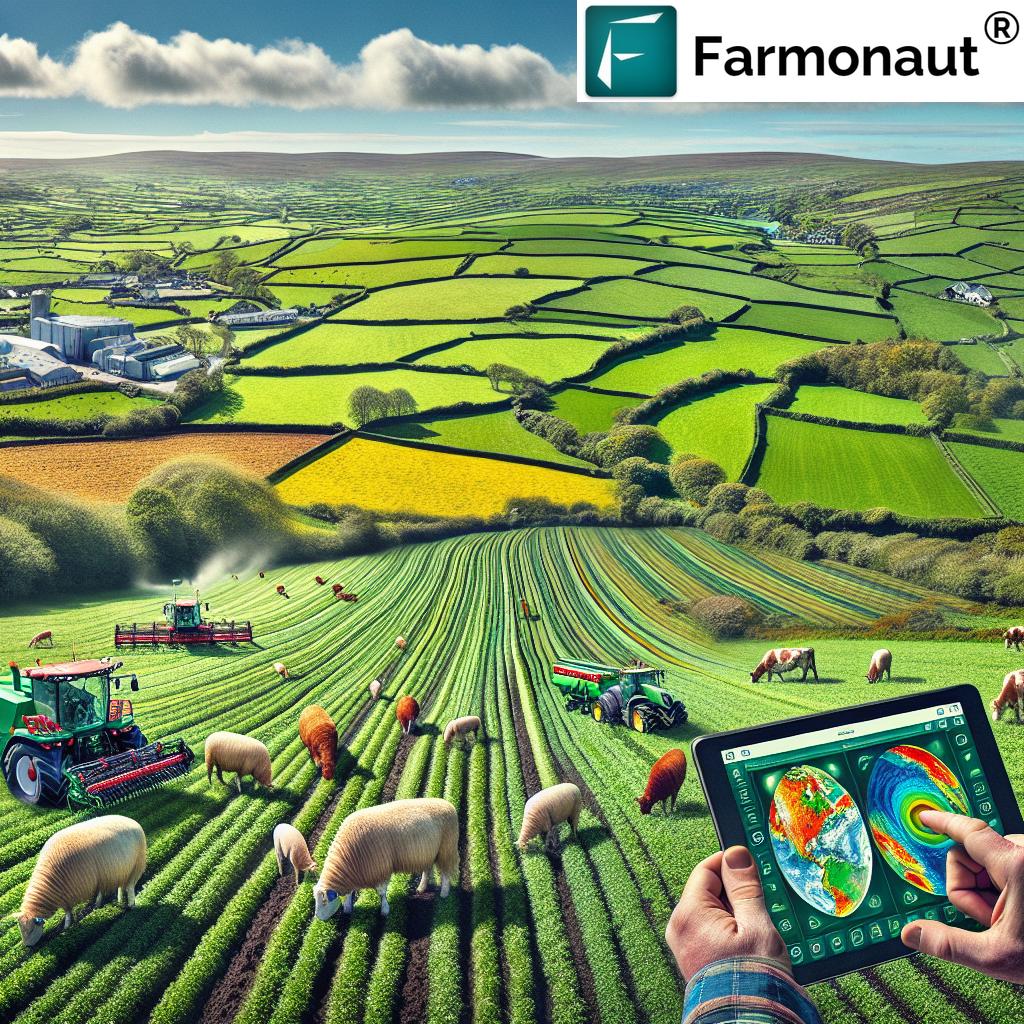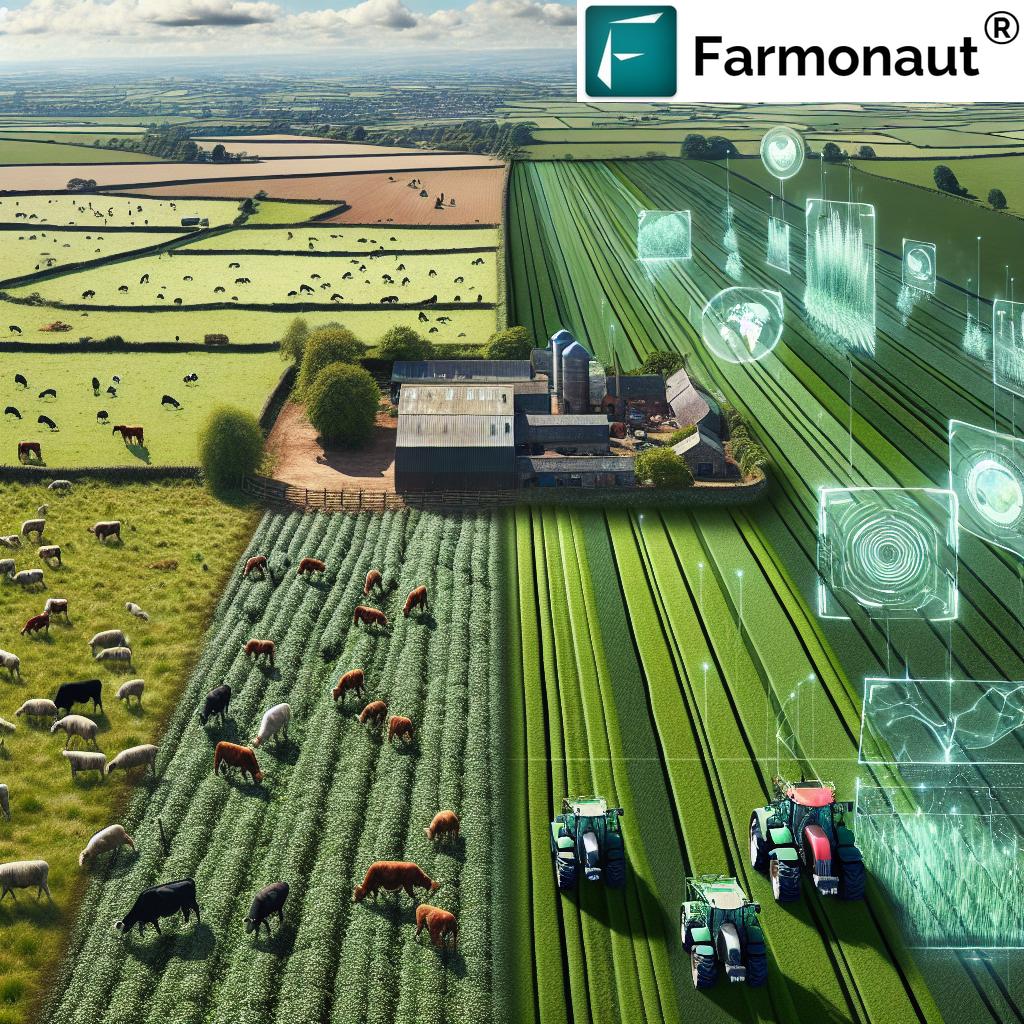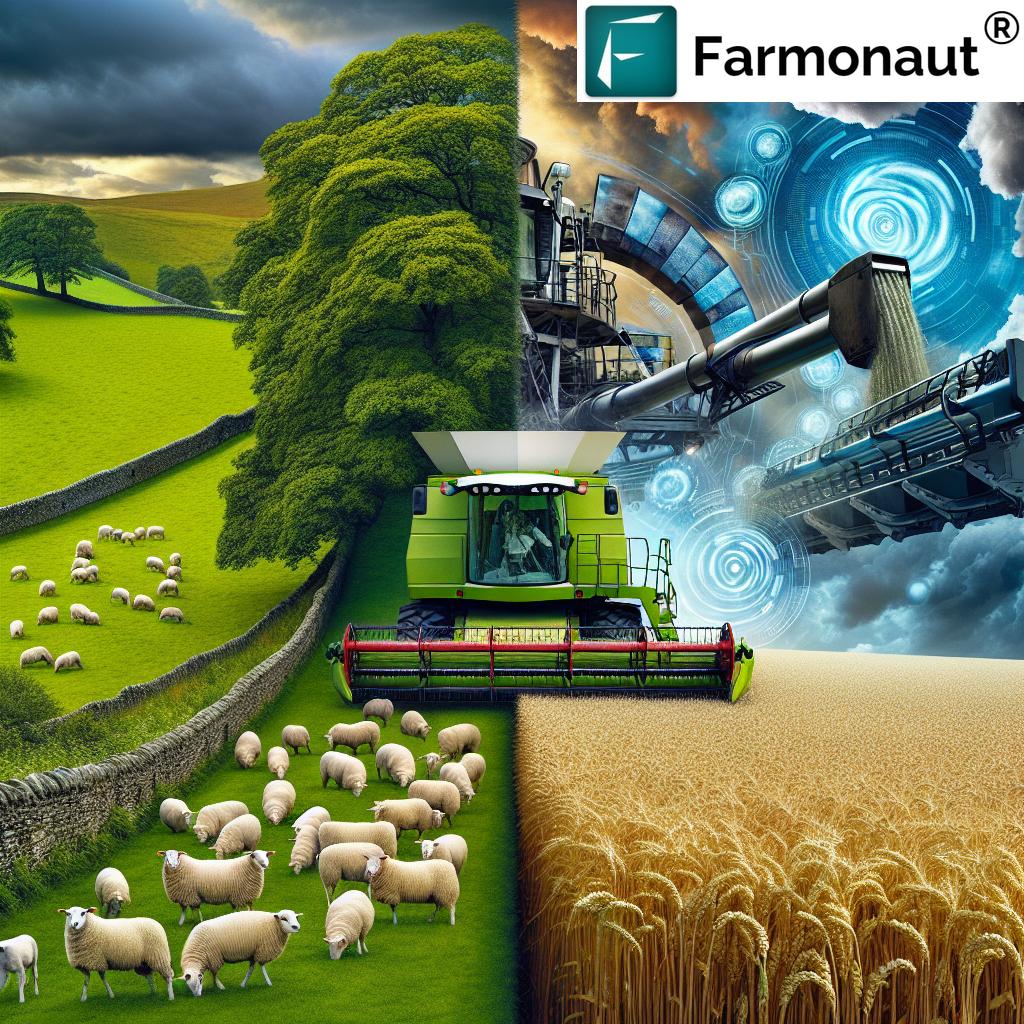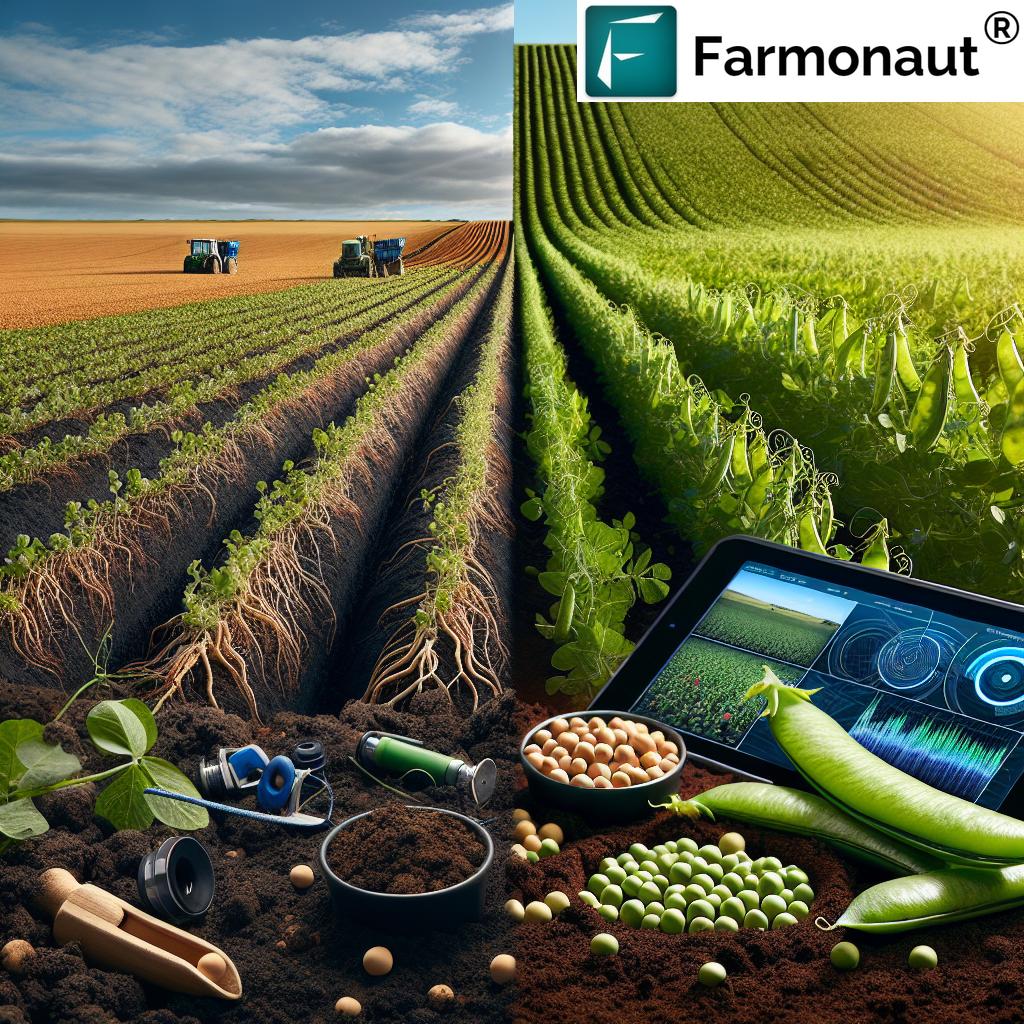Back British Farming: How UK’s Sustainable Agriculture Shapes Food Security and Rural Landscapes
“Over 100 MPs participated in Back British Farming Day 2023, with #BackBritishFarmingDay trending on social media.”
Welcome to our comprehensive exploration of Back British Farming Day 2023 and its profound impact on the UK’s agricultural landscape. As we delve into this crucial event, we’ll uncover how sustainable agriculture is shaping food security and rural communities across Britain. Join us as we examine the intersection of public support, political action, and innovative farming practices that are defining the future of British agriculture.
The Significance of Back British Farming Day 2023
Back British Farming Day 2023 was more than just an annual event; it was a resounding celebration of the UK’s agricultural heritage and a bold statement about its future. This day brought together farmers, politicians, and the public in a unified show of support for the bedrock of our nation’s food supply and rural economy.
- Unprecedented political engagement with over 100 MPs participating
- Widespread social media traction with #BackBritishFarmingDay trending
- Heightened public awareness of the importance of homegrown produce
The event underscored the critical role that farmers play in ensuring UK food security and maintaining our beloved rural landscapes. It also highlighted the growing emphasis on sustainable agriculture practices that are essential for the long-term viability of British farming.

Public Sentiment and Political Support
One of the most striking outcomes of Back British Farming Day 2023 was the clear alignment between public sentiment and political action. A recent survey revealed an overwhelmingly positive view of farmers among the British public, ranking them second only to nurses in favorability.
“A recent survey ranked farmers as the second most favorable profession among the public, just behind nurses.”
This public support was mirrored by significant political backing, with the government pledging increased support for:
- Farm technology advancements
- Precision agriculture initiatives
- Funding for rooftop solar installations
- Accelerated payments for environmental schemes
These commitments demonstrate a growing recognition of the need to modernize and sustain British agriculture in the face of global challenges.
Sustainable Agriculture: The Cornerstone of UK Food Security
Sustainable agriculture is not just a buzzword; it’s the foundation upon which the future of UK food security rests. As we navigate the complexities of climate change, resource scarcity, and population growth, the adoption of sustainable farming practices becomes increasingly critical.
- Reduced environmental impact through efficient resource use
- Enhanced biodiversity in rural areas
- Improved soil health for long-term productivity
- Decreased reliance on chemical inputs
By embracing sustainable methods, British farmers are not only safeguarding the environment but also ensuring the resilience of our food supply for generations to come.
The Role of Technology in Modern British Farming
The government’s pledge to support farm technology and precision agriculture aligns perfectly with the industry’s trajectory towards innovation. These technological advancements are revolutionizing the way British farmers operate, offering unprecedented levels of efficiency and sustainability.
- Satellite-based crop monitoring for optimal resource management
- AI-driven advisory systems for informed decision-making
- Blockchain technology for supply chain transparency
- Automated machinery for reduced labor costs and increased precision
At the forefront of this technological revolution are companies like Farmonaut, offering cutting-edge agritech solutions that empower farmers to make data-driven decisions and optimize their operations.

Evolving Agricultural Policies and Their Impact
The landscape of agricultural policy in the UK is undergoing significant changes, reflecting the government’s commitment to supporting farmers while promoting sustainable practices. These policy shifts are designed to address the unique challenges faced by British agriculture in a post-Brexit world.
- Implementation of the Environmental Land Management scheme (ELMs)
- Revision of subsidy structures to reward environmental stewardship
- Increased investment in rural infrastructure and connectivity
- Support for diversification and value-added activities on farms
These policy changes are reshaping the way farmers operate, encouraging a more holistic approach to land management that balances productivity with environmental conservation.
Enhancing British Food Production Through Innovation
British food production is entering a new era of innovation, driven by the need to increase yields while minimizing environmental impact. This innovation extends beyond the farm gate, encompassing the entire food supply chain.
- Development of drought-resistant crop varieties
- Implementation of vertical farming techniques in urban areas
- Utilization of big data for predictive harvest modeling
- Integration of renewable energy sources in farming operations
These advancements are not only boosting productivity but also enhancing the quality and nutritional value of British produce, reinforcing the UK’s position as a leader in sustainable food production.
The Importance of Farming Support Schemes
Farming support schemes play a crucial role in maintaining the viability of British agriculture, especially as the industry transitions towards more sustainable practices. These schemes provide financial backing and resources that enable farmers to invest in new technologies and adapt to changing environmental regulations.
- Grants for equipment upgrades and modernization
- Funding for research and development in agricultural sciences
- Support for young farmers entering the industry
- Incentives for adopting environmentally friendly farming methods
By providing this support, the government ensures that British farmers can remain competitive in the global market while adhering to the highest standards of sustainability and animal welfare.
Precision Agriculture: A Game-Changer for UK Farmers
Precision agriculture is revolutionizing farming practices across the UK, allowing for more efficient use of resources and improved crop yields. This approach uses data-driven insights to tailor farming practices to the specific needs of each field or even individual plants.
- GPS-guided tractors for precise planting and harvesting
- Drone technology for aerial crop monitoring
- Soil sensors for optimized irrigation and fertilization
- Machine learning algorithms for pest and disease prediction
The adoption of precision agriculture techniques is helping British farmers to reduce waste, minimize environmental impact, and increase profitability.
Download Farmonaut’s Android App

The Evolution of Crop Management Systems
Modern crop management systems are at the heart of sustainable agriculture in the UK. These sophisticated tools integrate various data sources to provide farmers with actionable insights for optimal crop health and yield.
- Real-time monitoring of crop growth stages
- Predictive analytics for harvest timing and yield estimation
- Integrated pest management solutions
- Automated irrigation systems based on weather forecasts and soil moisture levels
Companies like Farmonaut are at the forefront of this revolution, offering advanced crop management solutions that leverage satellite imagery and AI to provide farmers with unprecedented levels of insight into their fields.
Agritech Solutions: Bridging the Gap Between Tradition and Innovation
Agritech solutions are playing a pivotal role in modernizing British agriculture while respecting its rich heritage. These innovative technologies are helping farmers to overcome traditional challenges and embrace new opportunities for growth and sustainability.
- IoT devices for livestock monitoring and welfare
- Blockchain-based traceability systems for supply chain transparency
- AI-powered crop disease identification apps
- Virtual reality training programs for farm workers
By adopting these cutting-edge solutions, British farmers are not only improving their productivity but also enhancing the overall resilience of the UK’s agricultural sector.

The Impact of Back British Farming on Rural Communities
The ripple effects of Back British Farming Day 2023 extend far beyond the fields and into the heart of rural communities. By supporting British agriculture, we’re also preserving a way of life and sustaining the economies of countless villages and towns across the country.
- Creation of local jobs in farming and related industries
- Preservation of traditional rural skills and crafts
- Support for local businesses and services
- Maintenance of the unique character of Britain’s rural landscapes
The continued success of British farming is intrinsically linked to the vitality of our rural communities, making initiatives like Back British Farming Day all the more crucial.
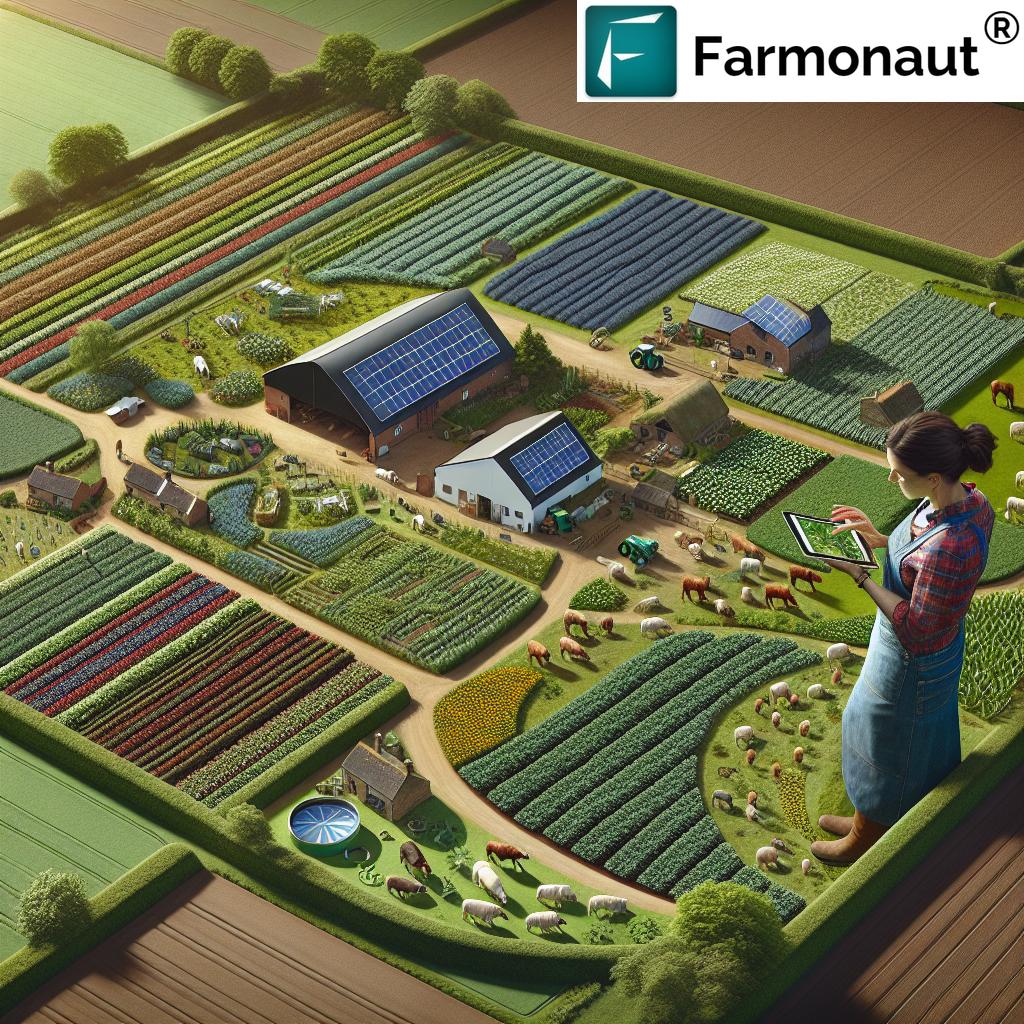
Comparing Public Support and Political Action
To better understand the current state of support for UK farming, let’s examine the alignment between public sentiment and political initiatives:
| Aspect | Public Support | Political Action |
|---|---|---|
| Favorability Rating | 85% public approval | £2.4 billion annual agriculture budget |
| Social Media Engagement | #BackBritishFarmingDay trending | 100+ MPs participating in events |
| Environmental Schemes | 76% support for sustainable farming | £2.4 billion for Environmental Land Management scheme |
| Technology Adoption | 68% believe in importance of agritech | £270 million Farming Innovation Programme |
| Food Security Initiatives | 92% prioritize domestic food production | National Food Strategy implementation |
This comparison illustrates the strong alignment between public sentiment and government action in supporting British agriculture. However, there’s always room for improvement to ensure that political initiatives fully meet the expectations and needs of both farmers and consumers.
The Future of British Farming: Challenges and Opportunities
As we look to the future of British farming, we see a landscape filled with both challenges and opportunities. Climate change, changing consumer preferences, and global market pressures all pose significant hurdles. However, the innovative spirit of British farmers, coupled with technological advancements and strong public support, presents exciting possibilities for growth and sustainability.
- Adaptation to changing weather patterns through resilient crop varieties
- Expansion of alternative farming methods like agroforestry and permaculture
- Development of new markets for plant-based proteins and novel crops
- Integration of circular economy principles in farm waste management
By embracing these opportunities and continuing to innovate, British agriculture can secure its position as a global leader in sustainable food production.
How Farmonaut Supports British Farmers
In the context of this evolving agricultural landscape, Farmonaut’s innovative solutions are particularly relevant. Our platform offers a range of tools designed to support British farmers in their journey towards more sustainable and efficient farming practices:
- Satellite-based crop health monitoring for optimal resource management
- AI-powered advisory systems for data-driven decision making
- Blockchain-based traceability solutions for supply chain transparency
- Carbon footprint tracking to support environmental initiatives
By leveraging these advanced technologies, British farmers can enhance their productivity, reduce costs, and contribute to the nation’s food security goals.
Explore Farmonaut’s API | API Developer Docs
Conclusion: The Ongoing Importance of Supporting British Farming
As we reflect on the success of Back British Farming Day 2023 and the current state of UK agriculture, it’s clear that continued support for our farmers is crucial. The alignment between public sentiment and political action is encouraging, but there’s always more work to be done to ensure a thriving, sustainable agricultural sector.
By embracing innovative technologies, sustainable practices, and supportive policies, we can secure a bright future for British farming. This not only guarantees our food security but also preserves the unique character of our rural landscapes and supports the livelihoods of countless communities across the nation.
Let’s continue to back British farming, not just for a day, but every day, ensuring that our agricultural heritage remains a source of national pride and prosperity for generations to come.
Farmonaut Subscriptions
Frequently Asked Questions
Q: What is Back British Farming Day?
A: Back British Farming Day is an annual event that celebrates UK farmers and highlights the importance of sustainable agriculture for national food security. It brings together farmers, politicians, and the public to show support for the agricultural sector.
Q: How does sustainable agriculture contribute to UK food security?
A: Sustainable agriculture practices help ensure long-term food production by preserving soil health, reducing environmental impact, and increasing farm resilience to climate change. This contributes to a stable and secure food supply for the UK.
Q: What role does technology play in modern British farming?
A: Technology plays a crucial role in modern British farming through precision agriculture techniques, satellite-based crop monitoring, AI-driven advisory systems, and blockchain-based traceability solutions. These innovations help farmers optimize resource use, increase yields, and improve sustainability.
Q: How can consumers support British farming?
A: Consumers can support British farming by choosing locally produced food, participating in farm-to-table initiatives, engaging with farming-related social media campaigns, and advocating for policies that support sustainable agriculture and rural communities.
Q: What are some challenges facing British farmers today?
A: British farmers face challenges such as climate change, market pressures, changing consumer preferences, and adapting to new agricultural policies post-Brexit. However, they are also presented with opportunities for innovation and sustainable growth.



